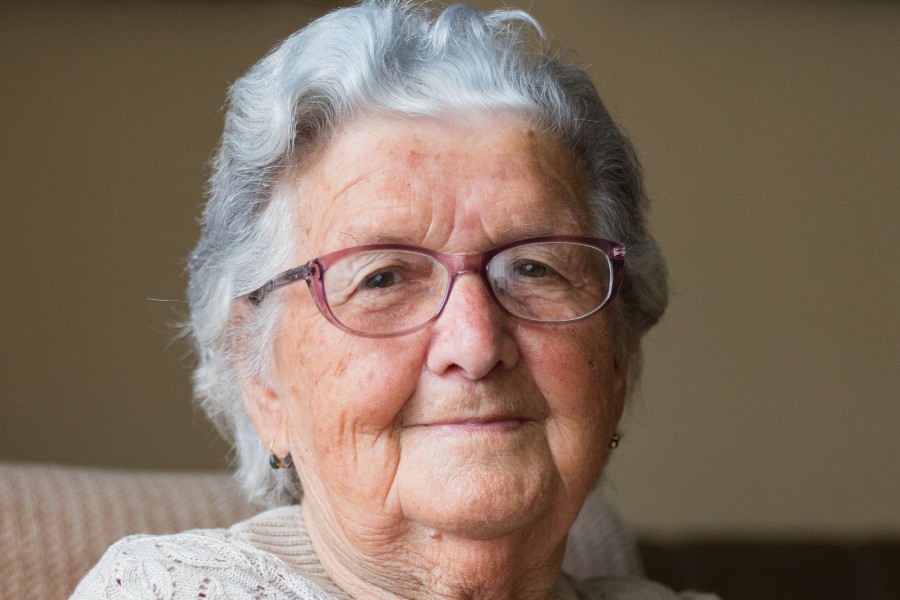The mental health of Americans, and specifically seniors, is a hot topic right now. With such an extended season of aggressive distancing and quarantines in 2020, many people are feeling isolated. Lonely. Sometimes even hopeless. This has resulted in increased rates of disorders such as depression and anxiety. Thankfully, these and other mental or neurological disorders are diagnosable and treatable, which is good news for the mental health of seniors.
For everyone, mental health includes our emotional, psychological and social well-being. It affects how we think, feel and act. It also helps determine how we handle stress, relate to others and make choices. For seniors, mental health is even more important. Why? According to the Centers for Disease Control and Prevention, isolation and loneliness can cause about a 50% increased risk of dementia. In other words, neglecting your mental health could result in serious consequences — even more so during a pandemic.
How important is senior mental health?
Before COVID-19, this is where seniors ranked in mental health struggles:
- More than 20% of adults ages 60 and over suffer from a mental or neurological disorder.
- The most common disorders in this age group are dementia and depression, which affect approximately 5% (dementia) and 7% (depression) of the world’s older population.
- Anxiety disorders affect 3.8% of the older population.
- Around 25% of deaths from self-harm are among people ages 60 or above.
A recent study at Indiana University found that “the pandemic was associated with worse mental health outcomes for many older adults.” The results were reported in the Journal of Gerontology: Series B.
One of the researchers in this study, Anne Krendl, associate professor in the College of Arts and Sciences’ Department of Psychological and Brain Sciences at Indiana University, added, “However, for some, having close social networks seemed to serve as a protector against negative mental health outcomes.”
Before we jump into other “protectors” and solutions, let’s address the top disorders influencing senior mental health: dementia and depression.
Dementia
The Alzheimer’s Association defines dementia as “A general term for loss of memory, language, problem-solving and other thinking abilities that are severe enough to interfere with daily life.” About 60%-80% of dementia cases are diagnosed as Alzheimer’s disease. Medical experts have identified seven stages of dementia from “no impairment” through “very severe decline.”
Some early signs of dementia can include:
- Memory loss outside of normal aging
- Struggles with speech and writing
- Inability to perform normal daily activities
- Confusion about times and places
- Poor judgement
- Misplacing items
- Vision, balance and reading struggles
Experiencing even one of these on a normal day might be cause for anxiety. It makes sense that dementia could impact a person’s mental health and may even lead to severe depression.
Depression
Depression is underdiagnosed and overlooked in seniors because it often looks different. The Center for Elderly Suicide Prevention (CESP) at the Institute of Aging states, “Depressed older adults are more likely to be irritable than sad, and to complain about physical ailments that their doctor can’t find a reason for.” Further, older adults may display depression more subtly, making it harder to recognize and diagnose. Again, according to CESP: “When young people talk about suicide they say, ‘I want to die.’ Older adults are more likely to say, ‘There’s no place for me,’ or ‘I don’t want to be a burden.’”
With a 25% death rate from self-harm in seniors, it’s important to recognize warning signs — within yourself if you’re an older adult, or with senior loved ones.
Keeping Your Mental Health A Priority
There are 4 areas that can nurture your mental health:
- Social Connection. Being in community changes everything. Without it, mental health declines. At Friendsview, we highly value community, even during the pandemic. Residents can audit classes at George Fox University (GFU) online. A close partnership with the GFU Behavioral Health Center allows for virtual groups that address loneliness, life transitions, and other mental health topics residents face. Some of our resident-led interest groups meet virtually now, too. No matter how you create community, it must become a priority for your mental health. Here’s a tip: Start with daily phone calls with loved ones.
- Spiritual Care. Studies suggest older adults who pray regularly display fewer signs of depression and anxiety. Our Quaker Heritage factors greatly in life at Friendsview as well as our mission of remaining a Christ-centered community. With the support of our Spiritual Care Team, Bible studies and prayer groups (now virtual), residents enjoy many avenues to build their faith and, therefore, their mental health.
- Physical Activity. Doctors stress the importance of fitness for mental health. We agree. Friendsview has made critical adjustments to our fitness program since the onset of the pandemic. Classes start early and boast smaller, physically distanced groups. Residents participate in studies and labs with the GFU Physical Therapy Department. Self-directed exercise outdoors is also highly encouraged. Don’t underestimate the value of uncomplicated exercise in your own life. Many older adults attribute good mental health to a simple walk every day. You can even do that in your living room by walking in place for 10 minutes. Start simple and start today.
- Counselors, Social Workers and More. This year, social distancing has been a useful tool for keeping the coronavirus at bay; however, aloneness can take a toll on your mental health. Thankfully, resources for older adults are plentiful. From online counseling apps to your local Aging and Disability Services, seek the support you need.
At Friendsview, our staff of social workers and local partnerships in the community provide connections needed for emotional health. One of our favorites is the Wellness Bridge. Launched as an answer to the pandemic, this program gives residents a place to talk about their concerns while forming social bonds and genuine friendships with staff members.
As a Life Plan Community, Friendsview is equipped for multiple levels of senior health care. We prioritize the mental and physical well-being of all our residents. Thanks to an active, faith-focused and social community, seniors don’t have to face any challenges alone. If you’re looking for a senior living community like Friendsview, we’d love to talk with you. Contact us today.
 Nikki Deckon has been on staff at Friendsview since 2018 in various roles and in long term care for several years. Before working with seniors, she wrote/produced hundreds of talk radio programs and vignettes; was published in a couple of editions of Chicken Soup for the Soul and other print publications including The Oregonian, Kids NW, The Sun and more. After twenty years of marriage she feels that she’s still in the “honeymoon” phase and is enjoying raising her teenage boys in Newberg, a mere two miles from Friendsview.
Nikki Deckon has been on staff at Friendsview since 2018 in various roles and in long term care for several years. Before working with seniors, she wrote/produced hundreds of talk radio programs and vignettes; was published in a couple of editions of Chicken Soup for the Soul and other print publications including The Oregonian, Kids NW, The Sun and more. After twenty years of marriage she feels that she’s still in the “honeymoon” phase and is enjoying raising her teenage boys in Newberg, a mere two miles from Friendsview.









